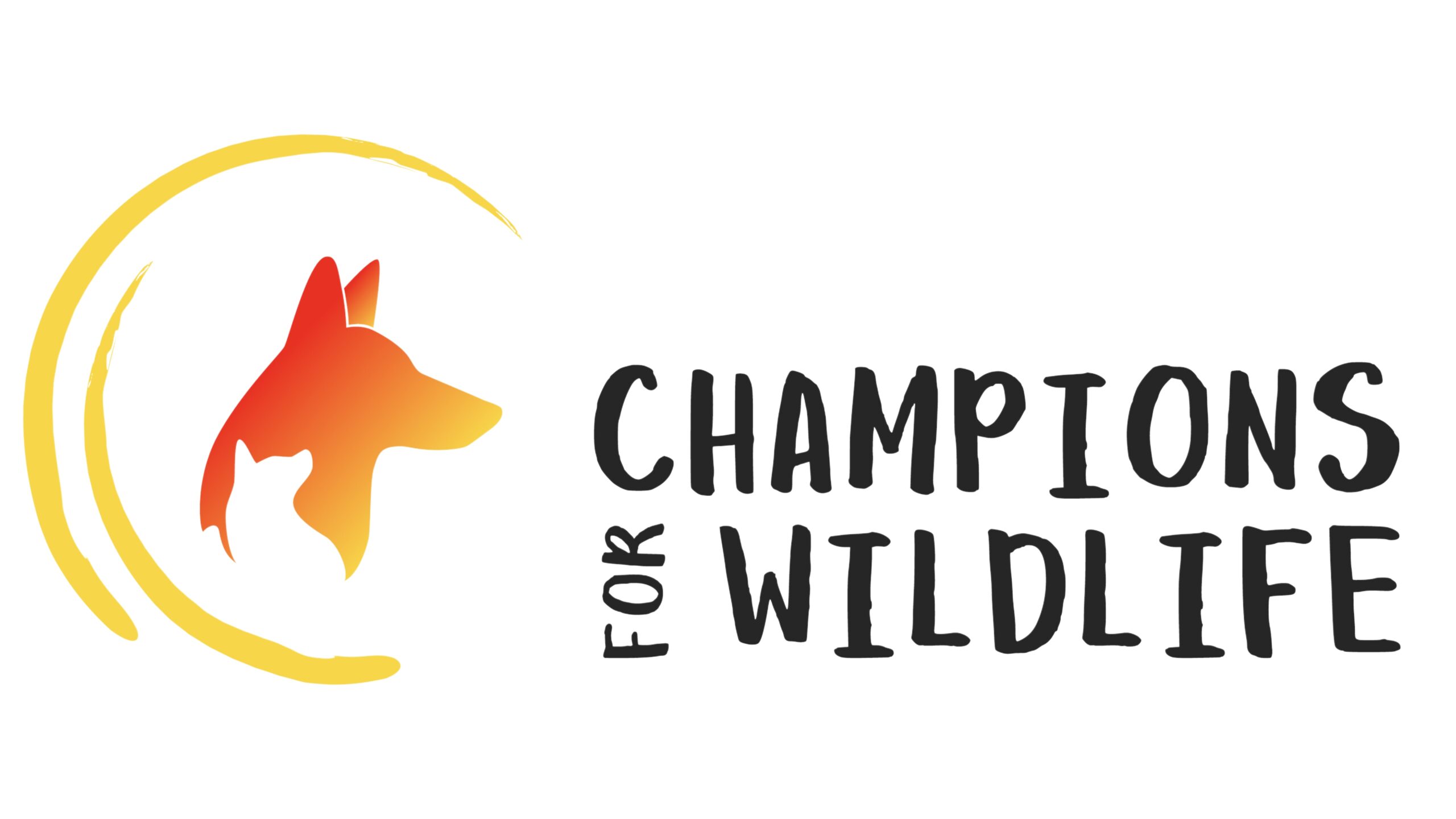Benefits of Bogs
Benefits
of Bogs
Have you ever slogged a bog (a new term we made up to describe walking through a bog)? If not, you have missed a unique, very fun experience to learn about the benefits of bogs. They are one of the most important and oldest (some are thousands of years old) ecosystems on our planet. Yet very few of us have actually experienced being in one.
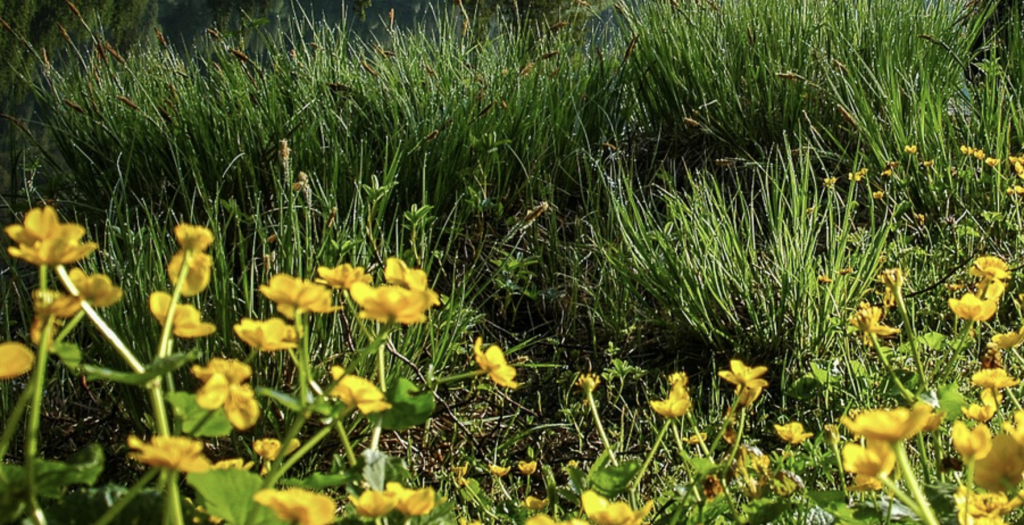
Bogs support a number of plants and grasses important to our ecosystem
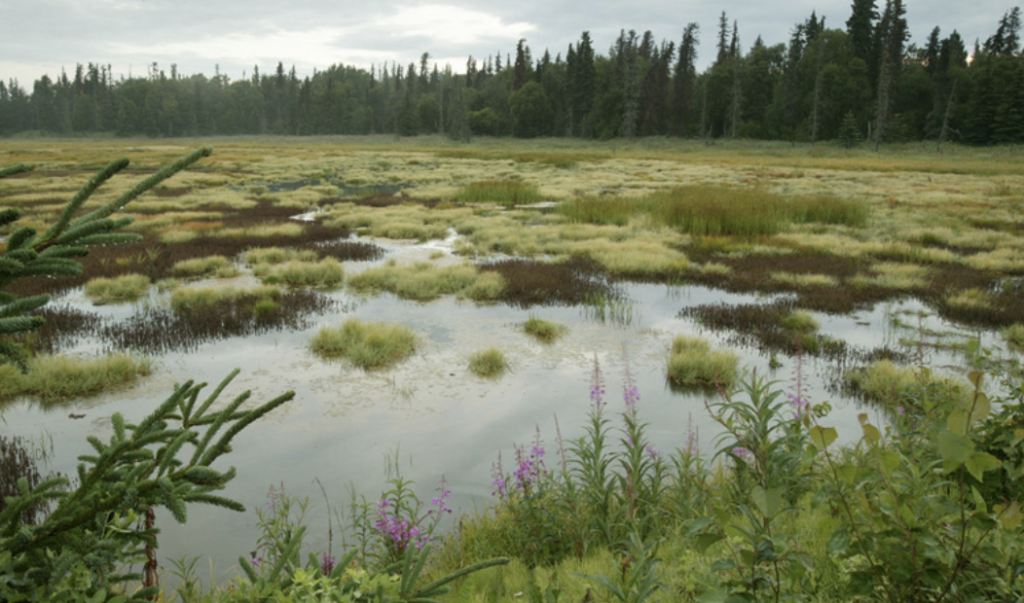
A peat bog which helps filter our air by removing carbon
WHAT IS A BOG?
So what actually is a bog? They are stagnant freshwater wetlands filled with decaying (rotting) materials. Sounds inviting! Made up mostly of peat, they are simply decomposing plants and other organic material. Since they only get water from rain or snow, bogs are very acidic and devoid of most nutrients.
So what are the benefits of bogs? One, they absorb a lot of water which helps control flooding and water accumulation. Second, they are huge carbon sinks removing and capturing carbon from the air. And when you destroy the bog by draining it, you release all the stored carbon back into the air which is not a good thing.
WHAT LIVES IN A BOG?
Plus, they have really cool plants like carnivorous pitcher plants that catch insects and eat them for nutrition. Blueberries (one of our favorite fruits) along with cranberries, orchids and many mosses also live in bogs. Not to mention many cranes (as in the bird) nest in bogs along with the critically endangered bog turtles, beavers, snakes and other animals which make the bog their home.
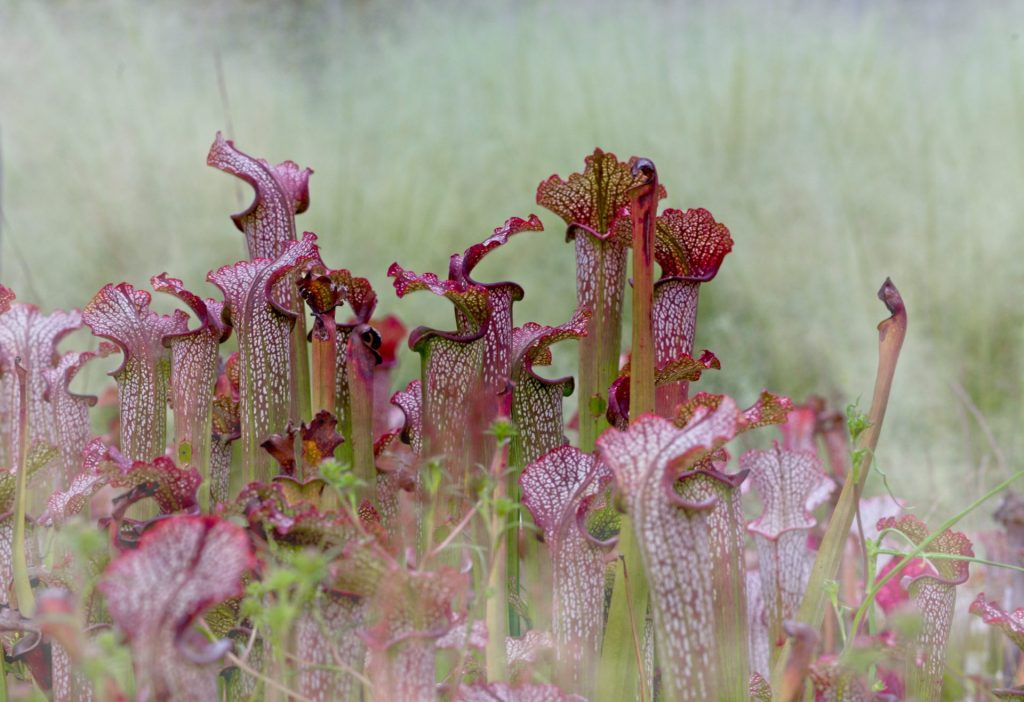
Carnivorous pitcher plants living in a bog
And walking through one? What is it like? Think about putting your foot in about a foot or two of muck, your boot gets stuck in the mud and comes off and then you fall down in the muddy, stagnant water.
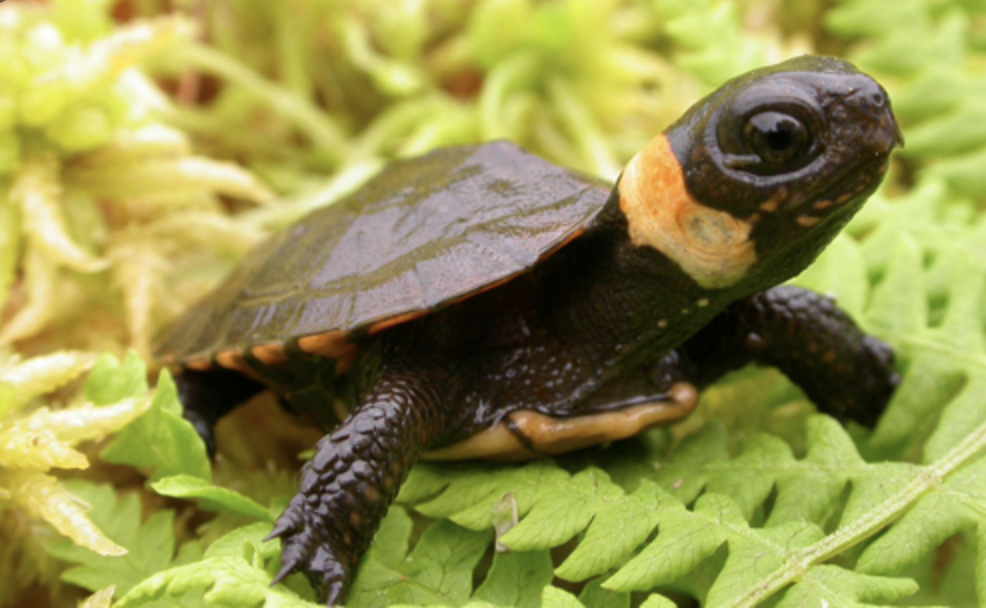
Bogs provide habitat for animals like this critically endangered bog turtle
If you like making mud pies as a kid, you will be in heaven. If you hate getting dirty, we suggest you pass. To read more about our first bog slog, read “A Passion for Wildlife” under Loti’s lens.
And a final note, peat is harvested from bogs and takes thousands of years to form. Current methods of harvesting peat are unsustainable. Try using coconut husks or just leaf mulch. The bogs will thank you.
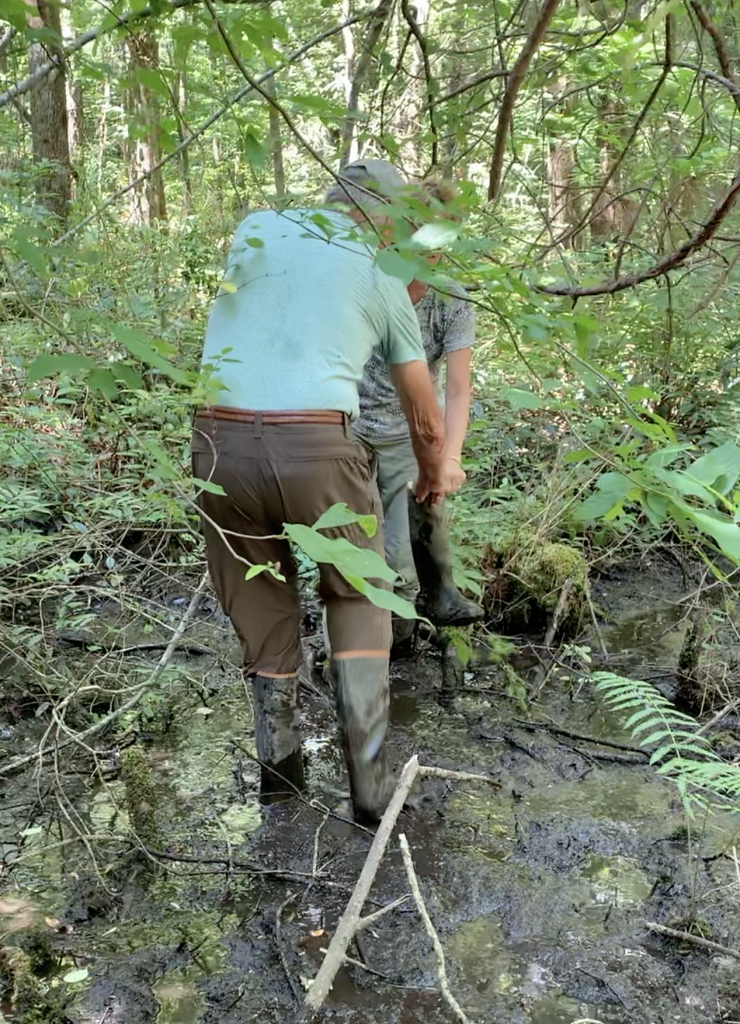
Dale slogging in a bog and trying to help my sister with her boot that got sucked off by the muck
We Are Candid Certified!

P.O. Box 128
Lynn, North Carolina, 28750
Champions for Wildlife is a registered 501(c)(3) nonprofit charitable organization.
EIN #87-4584220
NEWSLETTER SIGN-UP
